The Ups and Downs of Ecotourism
By David E. W. Fenner, Ph.D

Florida tourism is sometimes neatly categorized into “ecotourism” and “turnstile tourism.” Under this classification system, venues like Walt Disney World, Universal Studios, and the Kennedy Space Center fall under “turnstile tourism;” activities like Everglades airboat tours, snorkeling and diving at John Pennekamp State Park, and fishing in the Keys and Florida Bay fall under “ecotourism.” I suppose that it is open to debate how “neat” this system actually is given that Florida has a host of tourist attractions that seem to bridge the turnstile/ecotourism distinction: e.g., attractions like Silver Springs, Cypress Gardens, Busch Gardens, Sea World, Miami’s Seaquarium, and a collection of zoos (like Metrozoo, Lowry Park, and the Jacksonville Zoo). In addition to these “bridge” sorts of tourism, Florida also has historic tourist attractions that, because they do not involve the turnstiles so familiar in Orlando, are sometimes classed by the Florida tourism authorities alongside nature-based tourist attractions, e.g., St. Augustine, Ft. DeSoto, and the town of Mount Dora. Nonetheless, however we choose to categorize Florida tourism, it seems clear that any classification system that ignores nature-based events and sites will be sorely incomplete. Florida has, among other things, the weather, sunshine, coasts, reefs, rivers, springs, wetlands, subtropical flora and fauna that absolutely ensure that people will want to visit this state.
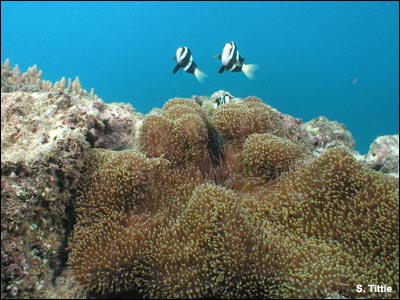
The question I want to explore here is whether we want people to visit the state. Do we want the ecotourists? Do we, as citizens of this state, want to encourage ecotourism? I ask these questions because ecotourism is a mixed bag; there are both pros and cons to it. Let’s look at some of each, starting with the cons.
The first downside to ecotourism is people. Sounds funny. But the reality is that when people visit the state they have an impact on it. Part of this impact will be economically positive, and most Floridians understand to some degree the economic realities of Florida tourism; Florida runs on tourism. But this impact clearly has a negative side as well. Ecotourists draw on state resources, both artifactual and natural. More people using the interstates and connecting roads mean more wear and tear. More people mean a greater drain on Florida’s water resources. And more people mean increased amounts of waste that must be dealt with.
Of course, ecotourists will be interested in seeing the natural objects that attract them here. This means that there will be more ecotourism providers, and with an increase in providers, there will be an increase in the number of sites that will be explored. Not only will the number of sites increase, but also as competition between ecotourism providers mounts—especially as the supply of tourists levels off or drops, as we have seen recently in post-9/11 Florida—it may be expected that these providers will look for natural objects of greater attraction. Who wants to see a red-tailed hawk when they could see a bald eagle? Who wants to see a bald eagle when they could see a bald eagle and her nest, complete with eggs or better, baby eaglets? An increase in people will mean greater intrusion into Florida’s natural world, both in terms of the quantity of sites explored and in terms of the quality of the objects that are focal in those sites. It is common sense to think that the more rare the object of attraction, the more it will attract. It is also common sense to think that it is exactly the most rare natural objects that require the most protection from incursion. Couple these concerns with the possibility of ecologically insensitive ecotourism providers, and you have a recipe for ecological disaster. One boat-tour captain or trail guide who feels the need to invade a rookery—for the sake of offering his clients a quality experience of nature—could effectively destroy the exact thing that attracts his clients in the first place. If this provider goes looking for other rookeries to showcase, there is no telling how much damage could be done.
A second downside to ecotourism concerns the level of training and preparedness of ecotourism providers. As I mentioned above, the dictates of the marketplace will have an impact on the number of providers, which in turn will have an impact on the natural areas they visit. But beyond the numbers, one has to be concerned with the training—as well as the sensitivities and the ethics—of the providers. This is the case no matter how well-intentioned the provider may be. She may not realize that the nests she takes her clients to visit will now be abandoned by the parent birds. She may not realize the incredible time it takes for coral to grow and therefore will not stress forcefully enough the need for taking great care in exploring the reefs. In addition, the insufficiently trained provider may be offering faulty information to her clients, so that visitors leave having mis-learned what they might otherwise have learned. This can happen with even the best-intentioned guide if there are no educational and training safeguards in place.
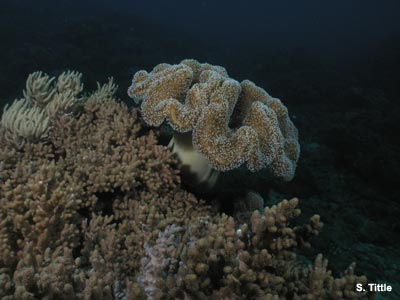
A third downside to ecotourism is the impact of exploration itself. Paths will have to be cut. Signs will have to be put up. Rest areas, bathrooms, and picnic sites will have to be constructed. Some litter is bound to happen. As people hike trails, they will brush spider webs out of their way. They will frighten and stress the animals hiding in the undergrowth. The birds will fly away. And they will squash plants and insects growing within and alongside the trails. I believe that human beings are generally unprepared for full-scale ecosystem management, the idea that we humans can fully manage, armed with good science and a robust sense of stewardship, a natural area. I think the best we can hope for right now is to recognize when we have had a large impact on an ecosystem and do what we can to address that impact. For instance, if we will not allow natural forest fires set by lightning, then we may need to perform “prescribed burns.” If we remove a species’ natural predators from an ecosystem, then we may need at times to “cull herds.” But these are only the large impacts. We really do not yet know—if we will ever fully know—all the small and subtle effects we have when we simply put ourselves in a natural site that has thus far been left alone. Many ecotourists will not be satisfied seeing a reclaimed tree farm or a “mitigated” wetland. They will want to see the “real thing,” and as we march into pristine land we make a mark that can never be taken back, and, worse still, of which we do not understand the scope.
Are there upsides to ecotourism? Certainly there are. Let’s now turn to some of these.
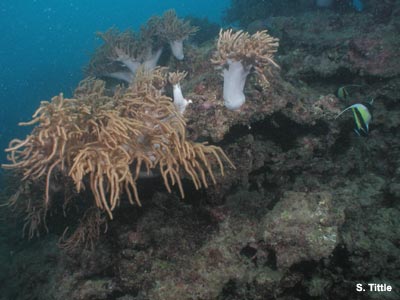
First and foremost has to be the educational benefit. In spite of how much my kids and I may love Disney World, I daresay that there is not a great deal of erudition taking place there. One does not learn much about other cultures from “It’s a Small World,” and one does not learn much about the habits of hippopotami from the “Jungle Cruise.” This, of course, is exactly the opposite in ecotourism. Ecotourism done right will afford ecotourists a wealth of knowledge, knowledge about individual species, about natural community types, and about whole ecosystems. This has always been the most popular stated justification for zoos: zoos provide a venue through which human beings—or at least those who lack the resources to travel to Africa, Asia, and South America—can experience first-hand contact with, and learn about, exotic animals.
The second upside of ecotourism is tied to the first. Education breeds informed concern. I believe that a person’s environmental ethic will not grow and/or mature through didactic means. I teach a lot of college kids in courses on environmental ethics, but I do not harbor the false hope that they will be moved through the power of my lectures toward a more rich and robust nature ethic. Sometimes through discussions or through particular readings, a student’s ethic will grow—in the case of my courses, Peter Singer’s Animal Liberation generally has had the greatest affect—but this is rare. I believe that a person’s environmental ethic grows and matures in the presence of meaningful—perhaps enlightening, perhaps moving—experiences in and of nature. If ecotourism is done right, and if ecotourists have quality and meaningful nature-based experiences, opportunities for environmental-ethical growth are presented.
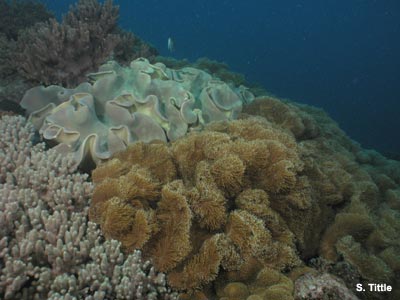
A third upside of ecotourism is the people. Sound funny again? The attraction of ecotourism is not contrived. No great feat of selling and marketing is needed. Most people like the outdoors. Most people enjoy and even relish seeing a member of a species they’ve never seen before, or hearing a birdsong they’ve never heard before. People like the sensory envelope that nature-based tourism provides. Going to an art gallery means using your eyes. Going to the movies means using your eyes and your ears. But going on a hike, or canoeing, or diving involves all of one’s senses. Putting people in nature is good for them, not merely on a cognitive or rational level. Not even on a moral or ethical level. It’s good for them virtually on all levels and for an extremely wide range of purposes. Ecotourism provides a way for human beings to reach out and connect with the rest of nature, and that’s healthy.
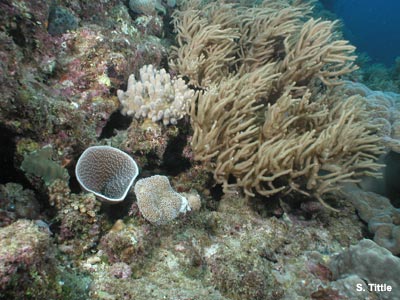
Do I have a recommendation with regard to whether we should, as a state, pursue ecotourism? Honestly I don’t. I think the field is fairly balanced between the pros and the cons. But I do think that recognition of the cons is important, and I think through this recognition we can move toward addressing the downsides of ecotourism, at least as much as we’re able. What I am clear on is that ecotourism is not going away, and Florida is not going to cease to attract scores upon scores of ecotourists. So the practical matter at hand is really not about deciding whether to encourage ecotourism, it’s really about how to provide the best and most responsible ecotourism we possibly can.
Copyright ©2003 Global
Underwater Explorers.
All rights reserved.

